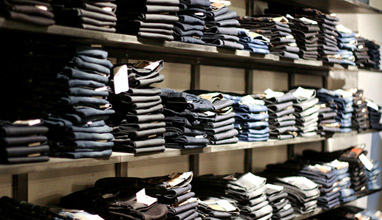Fast Fashion: France Leads the Way — Will Europe Follow?

A Two-Faced Industry
At first glance, fast fashion seems appealing: cheap clothes, delivered in days, and endless new styles just a click away. But behind this apparent convenience lies a much darker reality: massive pollution, overproduction, poor labor conditions in low-wage countries, and widespread textile waste.
Major players like Shein, Temu, and Boohoo drive an unsustainable pace of consumption — faster and faster, cheaper and cheaper. This business model clashes directly with Europe’s environmental and social ambitions.
France Takes Bold Political Action
In response, France has decided to act. In 2024, the French National Assembly passed a groundbreaking bill to rein in ultra fast fashion. The proposal includes:
- An environmental penalty of up to €10 per item by 2030.
- A ban on misleading greenwashing ads for highly polluting products.
- A requirement for brands to disclose each item’s environmental impact.
- Stricter regulation of influencer content promoting ultra-fast fashion.
The message is clear: this model is no longer viable — not for the planet, nor for society.
A National Law with European Limits
Despite its ambition, France’s initiative faces a major obstacle: the single European market. Ultra fast fashion brands, many based outside the EU, can still sell freely across borders. Without a common European framework, national laws risk being bypassed or diluted.
The EU Must Step In
The European Commission has already identified the textile sector as a priority in its sustainability agenda. One key project, the “digital product passport” (expected by 2030), would require transparency on sourcing, materials, and recyclability. But progress is slow compared to the rapid pace of fast fashion.
Civil society groups and Members of the European Parliament are now calling for stronger measures, including:
- EU-wide durability standards for textiles.
- A ban on destroying unsold goods across the EU.
- A carbon tax on low-cost textile imports.
- Unified transparency rules across the fashion supply chain.
A Chance to Reinvent European Fashion
Beyond regulation, this crisis presents an opportunity: to rebuild a slower, more sustainable, and more local fashion industry. Supporting European textile producers, promoting repair and recycling, and investing in shorter supply chains could create meaningful jobs and reduce environmental harm.
Conclusion: From Paris to Brussels, Time to Act
France’s new law sends a strong political signal — but it’s only the beginning. To truly challenge fast fashion, minimize its damage, and guide the industry toward a sustainable future, the European Union must take bold, unified action. This is not only a matter of climate responsibility, but also social justice and economic sovereignty.
Photo : Depositphotos
Hits: 6077 | Leave a comment





















